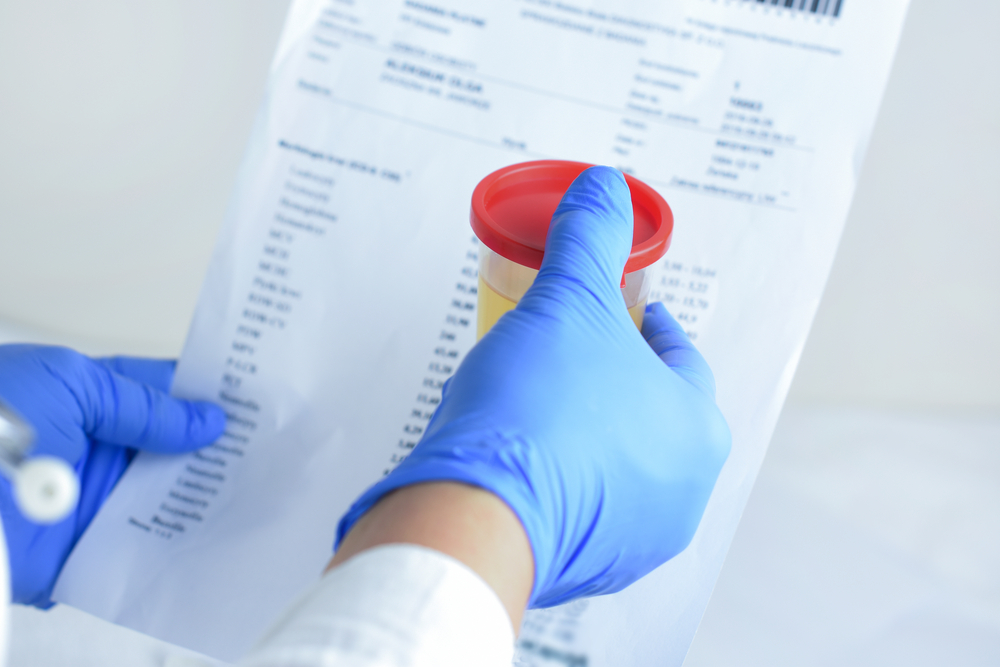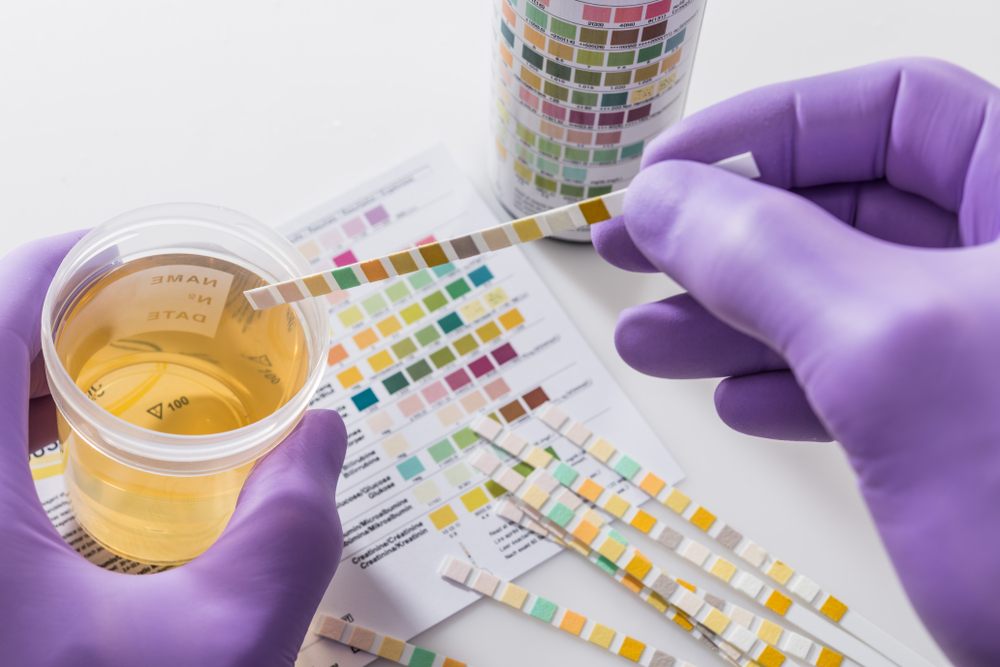How Long Does Alcohol Stay in Your System? An Informative Guide
How long does alcohol stay in your system? This is an important question as it is essential to be aware of how much time alcohol stays in your body to prevent potentially hazardous interactions with prescription drugs as well as impairments in your physical and mental functioning.
In order to comprehend the influence of alcohol on the body, as well as the span of time it remains in an individual’s system, one must comprehend how the depressant is taken in and metabolized. Alcohol has a distinct effect on people, and their resistance levels contrast. That being said, the timeline for the emergence of alcohol dependence and addiction will differ from person to person.
This article will discuss the average length in which alcohol stays in the system, drug test detection times, and treatment options if alcohol use has become a cause for concern for you or a loved one.
There is no single answer. The length of time alcohol stays in your system depends on various factors such as gender, weight, metabolism, and the amount of alcohol ingested.
How Long Does Alcohol Stay in Your System?
People frequently worry about the duration of time alcohol remains detectable in their bodies after consuming it. On average, the body requires approximately sixty minutes to process a single standard alcoholic drink. The exact amount of time alcohol can be discovered in a person’s system depends on different factors, like the type of drug test employed.
Ethanol’s (the main chemical component in alcohol) half-life is approximately 4 to 5 hours, meaning that it requires that much time for half of the consumed alcohol to be removed from the body. Generally, alcohol is taken into the body more quickly than it is broken down. For an individual who weighs 150 pounds, one alcoholic beverage will result in their blood-alcohol concentration (BAC) increasing by 0.02%. However, the body is only able to reduce 0.016% of alcohol per hour on average. This means that even if you restrict yourself to one drink per hour, your BAC will still continue to go up. If you consume more than one drink per hour, your BAC will rise even more quickly.

How is Alcohol Processed in the Body?
The method through which the body breaks down and metabolizes alcohol is fairly straightforward. Thus, the duration that alcohol remains in a person’s system is largely determined by the quantity they consume rather than any other elements. Once it is ingested, the alcoholic beverage enters the digestive tract, reaching the stomach and small intestine. The stomach absorbs around 20% and the rest (80%) gets absorbed in the small intestine and is then directly sent to the bloodstream.
When alcohol is present in the bloodstream, it rapidly spreads to all parts of the body, thus influencing various bodily systems. Most of the alcohol ends up in the liver, where the majority of alcohol metabolism occurs. Typically, the liver can break down one ounce of liquor (or one standard drink) in 60 minutes. If more than this amount is consumed, the liver is unable to cope, causing the surplus alcohol to linger in the blood and other tissues until it is metabolized. If this cycle is repeated too often or too quickly, it can lead to damage to the brain and other organs.
The human body has the capacity to process alcohol, as long as it is not ingested in excessive amounts. It is calculated that almost all the alcohol that is taken into the body is either metabolized or absorbed. The rest of the alcohol is then removed from the body via perspiration, urine, vomiting, and excrement.
Factors that Affect How Long Alcohol Stays in the System
Although the metabolism of alcohol occurs at a persistent rate, some individuals may sense the effects of alcohol for extended periods of time. This is because the level of alcohol present in the blood varies from one person to another due to a range of causes that include the following:
Gender
Physiological aspects cause alcohol to be processed differently by females than males and remain in a woman’s body longer. This happens due to the fact that women generally have a higher percentage of body fat combined with a lower percentage of body water in comparison to men. Even if two people are the same weight and height, a man’s body will be able to dilute the alcohol more than a woman’s. Hormone levels can also influence the body’s capacity to process alcohol and women will have higher blood alcohol concentration if they consume alcohol prior to menstruation. Studies have additionally found that women have lower levels of acetaldehyde dehydrogenase, the enzyme used to break down alcohol in the stomach.
Age
As individuals get older, the time alcohol remains in their livers before it reaches the general bloodstream or is broken down is longer, leading to more intense intoxication and more probable harm to the organ. Furthermore, older people tend to have reduced water in their system, which amplifies their blood alcohol concentration (BAC). Additionally, they are more likely to be taking medication that also affects their liver. All of these factors imply that alcohol is metabolized by the body more slowly.
Body Size
An individual’s body size and build can have a consequence on the speed with which alcohol is metabolized. Since fat tissue holds less water than muscle tissue, those with more body fat will typically have a higher Blood Alcohol Content. Additionally, an individual with a muscular frame who is of short stature will have a higher BAC than somebody taller than them but of the same composition.

Stomach Contents
Consuming a meal or snack before drinking can have a strong effect on the rate at which alcohol is taken in. The food helps to dilute the alcohol and impede the process of the stomach emptying into the small intestine, in which alcohol is quickly absorbed. The peak blood alcohol concentration (BAC) could be up to three times greater in someone with an empty stomach compared to someone who had something to eat prior to drinking. Eating meals at regular times and consuming snacks while drinking can help stimulate enzyme activity in the liver and slow down the rate of alcohol absorption.
Medications
Some medicines have a chemical reaction when combined with alcohol, which can modify the body’s metabolism and the way it processes alcohol. This can slow the rate at which the stomach empties its contents into the small intestine and liver, leading to a quicker absorption of alcohol. This leads to a rapid rise in Blood Alcohol Content (BAC) levels, causing the effects of intoxication to take effect much more quickly in the body.
How Long Can Alcohol Be Detected?
Working out precisely how long alcohol can be identified in the body is contingent on a number of elements, such as the type of drug test that is utilized. Alcohol may be identified over a shorter duration with some tests, but it is able to be seen for up to three months with others. The following is an approximate span of times, or detection windows, wherein alcohol can be distinguished through a range of examination methods.
Urine
It is possible to identify the presence of alcohol in a person’s urine for up to five days using ethyl glucuronide (EtG) metabolite testing, or for up to twelve hours using traditional testing methods.
Breath
It is possible to detect the presence of alcohol in a person’s breath using a breathalyzer test for up to one day.
Blood
The effects of alcohol can remain in an individual’s system for up to 6 hours after consumption.

Saliva
Alcohol is identifiable in your saliva for a period of up to one day to two days after ingesting it.
Hair
The presence of alcohol in someone’s system through a hair follicle test can be identified for a period of three months.
Alcohol Withdrawal
Consuming heavy amounts of alcohol for an extended period of time can lead to mental and physical issues when attempting to stop or reduce the amount that is consumed. This is known as alcohol withdrawal and can produce symptoms from minor to severe.
Alcohol has a depressant effect on the body. It reduces the velocity of brain action and alters the way your nerve cells communicate. Over time, your central nervous system adapts to the presence of alcohol. Your body works to maintain the brain in an alert state and ensure the cells remain in contact with each other. When the alcohol level decreases suddenly, the brain remains in this aroused state, which is what leads to withdrawal. Symptoms include:
- Nausea
- Anxiety
- Headache
- Shaky hands
- Sweating
- Insomnia
- Rapid heart rate
- Fever
- High blood pressure
- Confusion
Treatment for Alcohol Abuse and Addiction
Different types of treatment for alcohol use disorder may be recommended based on an individual’s needs. These treatments may range from a short intervention to individual or group therapy, an outpatient program, or a residential inpatient stay. The primary focus of treatment is to help the person achieve sobriety in order to improve their overall well-being. Treatment for alcohol use disorder may involve any of the following:
Detox
The initial step of treatment may involve detoxification — a medically monitored process of abstaining from the substance. Commonly referred to as detox, this typically takes anywhere from two to seven days. To avoid withdrawal symptoms, it is likely that a person may need to take sedative medications. Detox is usually conducted in an inpatient treatment center or a hospital.
Inpatient Rehab
Individuals suffering from severe alcohol addiction may require an inpatient program for recovery. These residential treatment plans encompass private and group therapy, help groups, instructional talks, family participation, and recreational activities. Such rehabilitation centers usually employ certified alcohol and drug counselors, social workers, nurses, doctors, and other professionals with expertise in tackling alcohol use disorder.

Outpatient Rehab
Outpatient treatment options can vary in terms of the amount of support provided. In certain situations, individuals may move from inpatient to outpatient treatment. This type of treatment includes individuals living in their own homes and going to therapy for a set number of hours each week. This approach is very supportive and organized. It can be advantageous for those who are not able to remain in an inpatient facility, but who still need a great deal of help.
Treatment for Alcohol Addiction in Asheville, NC
If you’ve recently found yourself asking how long does alcohol stay in your system, there’s a chance alcohol has become problematic in your life or in the life of a loved one. If you or someone you know is struggling with alcohol addiction, it is essential to get professional assistance and consider treatment.
The experts at Durable Recovery have consolidated decades of expertise in curing different types of addiction issues. With our support, you can face up to your substance misuse and start to recover. If you would like to find out more about the addiction treatment options or any other assistance we provide, please get in touch with us right away. It is time to regain control of your life and we are here to support you.








